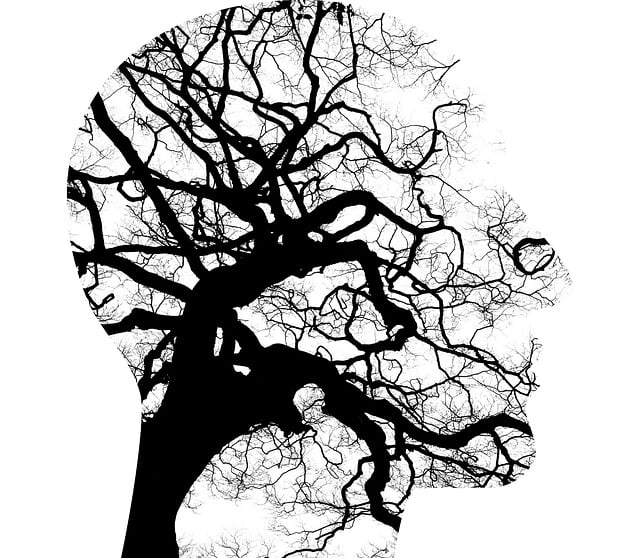“Unveiling the power of storytelling for mental wellness, this comprehensive guide delves into the production of a podcast series focused on bipolar disorder management. From initial planning to final distribution, we explore key steps including audience identification, expert selection, and engaging content creation. Learn effective recording techniques, sensitive editing practices, and strategic promotion methods, all tailored to enhance access to Centennial Bipolar Disorder Therapy through accessible media. Discover how your podcast can become a lifeline for those navigating this complex condition.”
- Planning and Pre-Production
- – Identifying the target audience for a mental wellness podcast
- – Defining the focus and theme episodes (e.g., coping mechanisms, bipolar disorder management)
- – Researching and selecting experts in bipolar disorder therapy
Planning and Pre-Production

Before initiating the recording process, a robust planning and pre-production phase is paramount to the success of any mental wellness podcast series. This crucial step involves defining the show’s purpose, target audience, and unique value proposition, ensuring it resonates with listeners dealing with various challenges, such as Centennial Bipolar Disorder Therapy.
During this stage, researchers and hosts should collaborate to create a structured outline for each episode, incorporating topics like Self-Esteem Improvement and Burnout Prevention Strategies for Healthcare Providers. A well-thought-out script or detailed talking points guide the conversation, ensuring informative and engaging content. Additionally, strategizing about guest selection and scheduling is vital; inviting experts and individuals with compelling stories related to mental health can significantly enhance the show’s impact, fostering a sense of community through a Community Outreach Program Implementation.
– Identifying the target audience for a mental wellness podcast

When producing a mental wellness podcast series, identifying your target audience is a crucial step. Understanding who you’re creating content for allows you to tailor discussions and strategies to address their specific needs. For instance, if your focus is on Centennial Bipolar Disorder Therapy, your target audience would likely include individuals diagnosed with bipolar disorder, their caregivers, and mental health professionals looking to enhance their understanding of this particular mental health condition.
This segment of listeners may be seeking practical advice, coping mechanisms, and the latest research related to bipolar disorder. Engaging with them requires a balanced approach—presenting both scientific information and personal narratives to foster mental health awareness and create a supportive community outreach program implementation.
– Defining the focus and theme episodes (e.g., coping mechanisms, bipolar disorder management)

When crafting a podcast series focused on mental wellness, establishing a clear and cohesive theme is paramount. Each episode should aim to explore specific aspects of mental health, offering valuable insights and practical strategies to listeners. For instance, episodes could delve into coping mechanisms for stress and anxiety, providing tools for everyday resilience. Another potential theme could be dedicated to shedding light on bipolar disorder management, featuring expert interviews and personal narratives to increase public awareness campaigns development around this often-misunderstood condition, akin to the support offered by Centennial Bipolar Disorder Therapy.
The key is to identify topics that resonate with a broad audience while also catering to specific mental health concerns. By addressing themes like burnout prevention, listeners can gain actionable advice for maintaining and improving their overall mental wellness. This strategic approach ensures each episode contributes to an engaging narrative, attracting and retaining a dedicated listener base.
– Researching and selecting experts in bipolar disorder therapy

When producing a podcast series focused on bipolar disorder therapy, meticulous research is paramount to ensure the accuracy and value of the content. The first step involves identifying and selecting experts with a proven track record in this field. This includes searching for practitioners who specialize in Centennial Bipolar Disorder Therapy, a niche area that requires advanced understanding and tailored approaches.
Consider reaching out to licensed therapists, psychologists, or psychiatrists with experience in treating bipolar disorder. Additionally, incorporating insights from researchers specializing in mental health policy analysis and advocacy can offer a broader perspective on the latest trends and advancements in bipolar disorder management. These diverse perspectives ensure a rich and multifaceted discussion that benefits listeners looking to enhance their understanding of this complex condition. Moreover, incorporating practical aspects like Social Skills Training and Emotional Intelligence strategies within the episodes can empower listeners with actionable tools for managing their mental health.
In conclusion, producing a mental wellness podcast series involves strategic planning, from identifying your target audience like those seeking Centennial Bipolar Disorder Therapy to curating expert insights. By defining focused themes and selecting qualified professionals, each episode becomes a valuable resource for listeners navigating mental health challenges. This approach ensures your podcast series is informative, engaging, and impactful.














